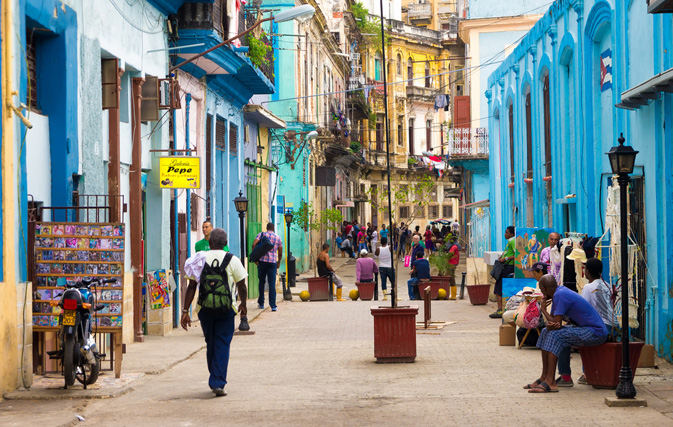WASHINGTON — While Canadian travellers are still flocking to Cuba’s beaches in record numbers, American travellers with Cuba on their wish list are even less likely to go now that President Trump’s administration has handed down specific travel, commerce and financial restrictions for the island.
Now off-limits to U.S. citizens are dozens of Cuban hotels, shops, tour companies and other businesses included on a lengthy American blacklist of entities that have links to Cuba’s military, intelligence or security services.
Blacklisted hotels include the Manzana Kempinski, which opened with great fanfare this year as Cuba’s first to meet the international five-star standard.
Most Americans will once again be required to travel as part of heavily regulated, organized tour groups run by U.S. companies, rather than voyaging to Cuba on their own.
The stricter rules are the implementation of Trump’s revised Cuba policy announced in Miami back in June. They mark a return to the tougher U.S. stance toward Cuba that existed before former President Barack Obama and Cuban President Raul Castro restored diplomatic relations in 2015.
“These measures confirm there is a serious reversal in bilateral relations which has occurred as a result of the decisions taken by the government of President Donald Trump,” said Josefina Vidal, the top Cuban diplomat for North America.
However the overall impact on American business with Cuba will be limited. Trade is sparse as it is and many American travellers already stay at hotels not on the no-go list.
Cruise ship calls and direct commercial flights between the countries will still be permitted.
The rules are designed to steer U.S. economic activity away from Cuba’s military, intelligence and security services, which dominate much of the economy through state-controlled corporations. The goal is to encourage financial support for Cuba’s growing private sector, said senior Trump administration officials, who briefed reporters on a conference call on condition they not be quoted by name.
“We have strengthened our Cuba policies to channel economic activity away from the Cuban military and to encourage the government to move toward greater political and economic freedom for the Cuban people,” Treasury Secretary Steven Mnuchin said.
The new policy maintains several categories of travel to Cuba that are permitted despite the embargo, which carries on decades after the Cold War’s end. Americans can still travel on educational and “people to people” trips as well as visits designed to support the Cuban people by patronizing privately owned small businesses that have popped up across the island in recent years.
But those travelling to support Cuba’s people must have a daylong schedule of activities designed to expose them to Cubans and steer dollars toward citizens, such as renting rooms in private homes. Those on organized, “people to people” or educational visits must be accompanied by a representative of the U.S.-based group organizing the trip.
Vidal, the Cuban diplomat who was the public face of Cuba’s opening with the United States during the Obama administration, said the policy would harm Cuba’s economy, American citizens and U.S. businesses. The rules were also quickly denounced by travel groups and proponents of closer U.S. ties to the island.
The rules come amid deep strains in the U.S.-Cuba relationship stemming from invisible, unexplained attacks that have harmed more than two dozen U.S. government personnel in Havana since 2016. The attacks led the Trump administration to order most of its diplomats to leave Cuba in September and issue a sweeping travel warning urging Americans to stay away.
Officials insisted that the new, tougher rules had no connection to the attacks. The U.S. first complained to Cuba’s government about the attacks in February, four months before Trump announced his broader policy intentions.
Some exceptions will accommodate Americans who already plan to visit Cuba. Those who booked “people to people” trips before Trump’s June announcement will be exempt, along with Americans who organized education trips before the rules start on Thursday. Business deals already reached with entities on the prohibited list will be allowed to proceed.
It’s unclear how aggressively the U.S. will police the new rules. Officials said they would use information obtained from several U.S. agencies to catch violators, who could be subject to penalties and criminal prosecution.
The blacklist bars business with the large military-run corporations that dominate the Cuban economy. These include GAESA and CIMEX, holding companies that control most retail business on the island; Gaviota, the largest tourism company; and Habaguanex, which runs Old Havana.
With files from The Associated Press
